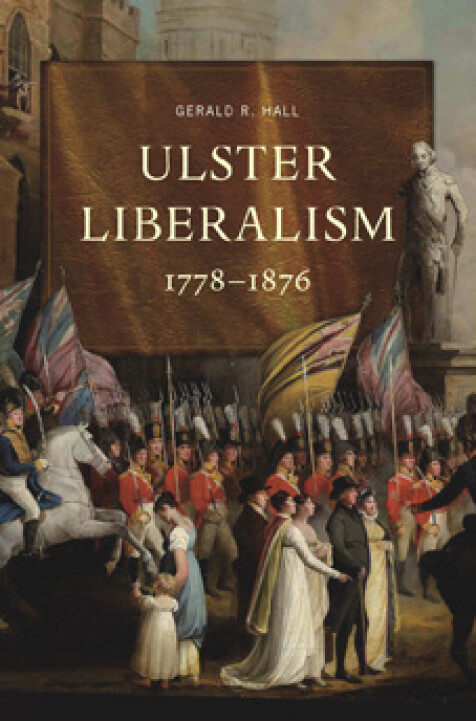Ulster liberalism, 1778–1876
Gerald Hall
Beginning in 1778, Volunteers such as William Bruce and William Drennan gathered, often in uniform, to discuss a constitutional crisis in Ireland in terms of classical models and concepts prevalent in the wider Atlantic world. By 1815, however, the traumatic experiences of rebellion, wars with France, and union with Great Britain not only had divided former friends and colleagues but also made many of the ideals and concerns of the Volunteers seem quaintly irrelevant. This book explains how other currents of thought within the Volunteer movement, represented in the writings of the Newry barrister Joseph Pollock, the sometime Derry editor George Douglas and occasionally even the pages of the Belfast Monthly Magazine of William Drennan, came together to form Ulster liberalism.
During the period between 1815 and 1876, Ulster liberalism, often neglected or dismissed by those enamored with more dramatic conspiracies and conventions, continued to develop both politically and ideologically. Beginning in Belfast and Newry and then spreading to other towns, including Coleraine, Enniskillen, Armagh, Portadown, Strabane and Bangor, Ulster liberals became involved in a series of struggles about local government and land reform that significantly challenged or undermined - for a time at least - aristocratic and conservative domination of many towns. Towns like Armagh, Newtownards, Lisburn and Portadown that by 1876 would become bywords for sectarian exclusion and conflict were scenes of liberal successes and even Catholic representation in local government. Ideologically, the works of James Godkin, James McKnight, Richard Smyth and Thomas Witherow bore witness to the increasing difficulties of Ulster liberalism after 1860. When James McKnight, perhaps the most influential Ulster liberal of his day, died in 1876, many of the hopes and achievements of Ulster liberals for their society were threatened.
Gerald Hall is a former senior research fellow at the Institute of Irish Studies, Queen’s University Belfast and holds a PhD from the University of Chicago. He currently manages the Digital South Asia Library, a project funded by the US Department of Education.

